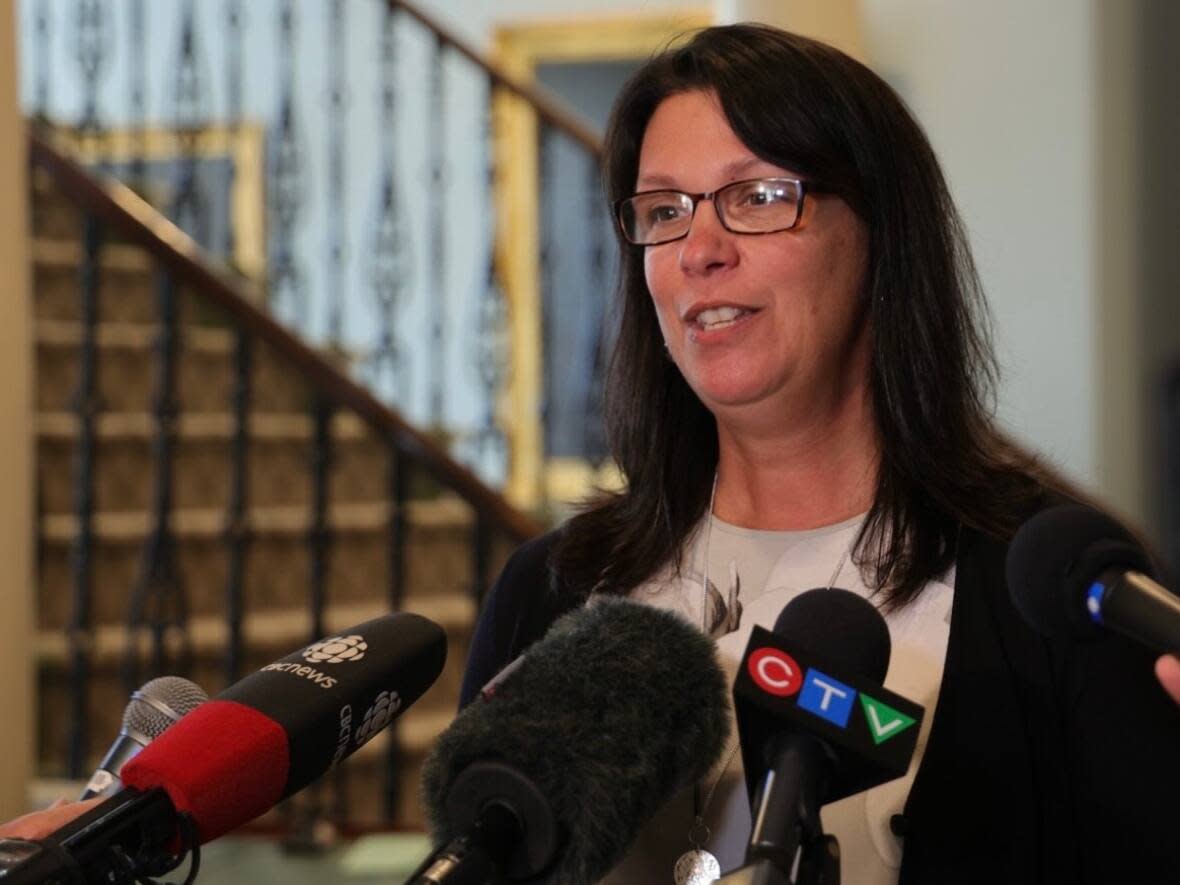N.S. aims to streamline licensing process for nurses, doctors trained outside Canada

Health Minister Michelle Thompson says the only way Nova Scotia will be able tackle health-care worker shortages is through immigration and, for that reason, the government wants to streamline the licensing process for people moving to the province from outside Canada.
"We know we're never going to be able to grow the workforce we need right now — we have a significant gap," the minister told reporters following a funding announcement in Halifax on Tuesday.
Thompson's comments come as the Government of Ontario has ordered regulatory bodies there to find faster ways to license nurses and doctors who trained outside Canada.
There have been recurring complaints from health-care professionals moving to Nova Scotia about the cumbersome process of getting licensed to work in positions similar to those they held in other countries. Thompson said ensuring patient safety remains a priority and her government is working cooperatively on the issue with the colleges of nurses and physicians and surgeons.
"Those systems are bureaucratic and they're clogged, but we are looking at ways that we can maintain credentialing and use the education that folks have in a meaningful way in the system. If not immediately, ... [after] we can ladder them to that place."
'We are committed to this'
As an example, the minister said someone who worked as a nurse in another country might begin working here as a continuing-care assistant and then work their way up to being recognized as a licensed practical nurse or registered nurse.
The government is also looking at opportunities for shared licensing with other provinces, including throughout Atlantic Canada, said Thompson.
"We've tried to be really proactive and quick," she said.
"I don't anticipate this is going to be work that is going to take us five or six years. We are committed to this, to understand how to move it forward."
Family practice waitlist continues to grow
Meanwhile, new data released Tuesday show the number of people waiting for a family practice increased by six per cent in July, coming in at 100,592.
The largest increase in demand is located in the central zone, which jumped by 10.5 per cent, followed by the eastern zone at 7.2 per cent. The western zone increased by 3.6 per cent, while the northern zone went up by 1.3 per cent.
The number of people on the registry has increased significantly since April. Thompson said she believes people will begin seeing progress "in the next several months" after almost a year of what she called "foundational work" to understand the primary-care system.
"I would like it to be quick, as well," she said. "But I am very hopeful that we have the right vision in place now for us to be able to more forward and start to make some appreciable change."
MORE TOP STORIES

 Yahoo Movies
Yahoo Movies 
